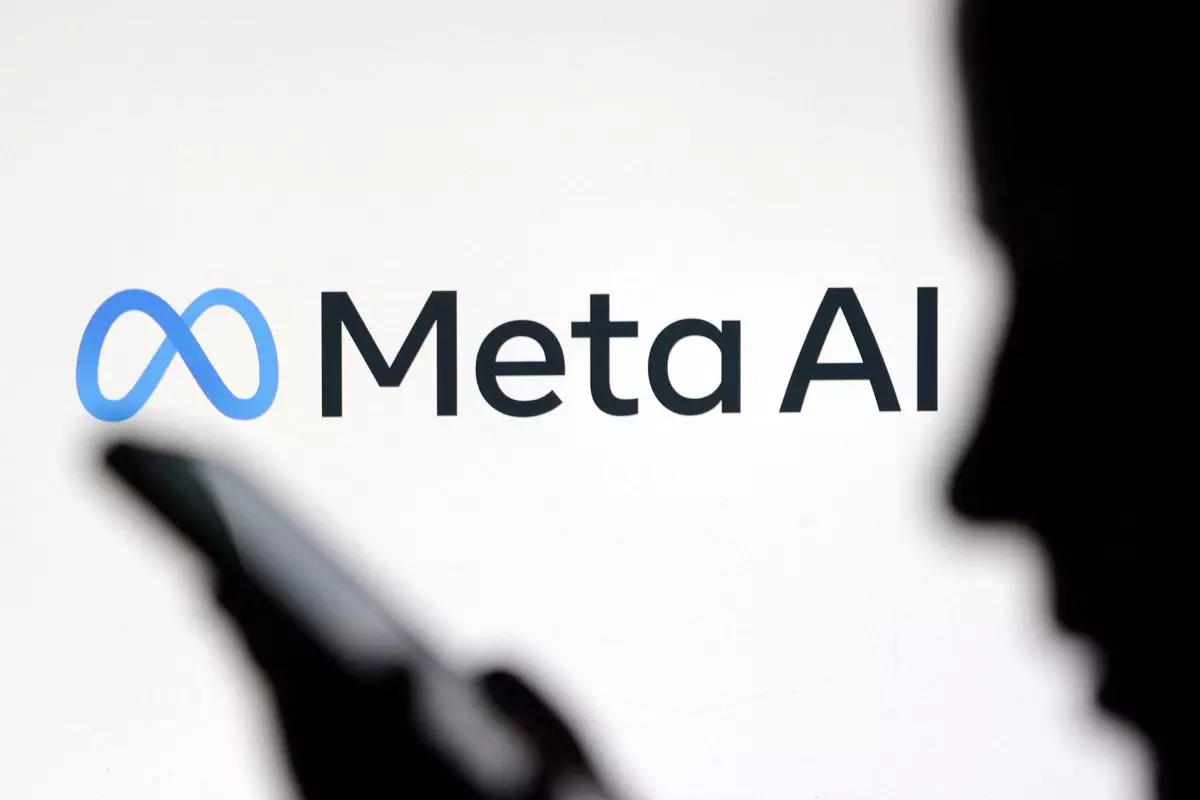Meta, the parent company of Facebook, has taken a significant leap in artificial intelligence (AI) research by unveiling a suite of new AI models designed to enhance the developmental process of AI technologies. Among these innovations is the “Self-Taught Evaluator,” a groundbreaking tool intended to reduce the need for human intervention in AI training and evaluation. This initiative aligns with a broader trend in AI development that seeks to cultivate increasingly autonomous systems capable of self-supervision and improvement.
The Self-Taught Evaluator relies on a sophisticated technique known as “chain of thought,” which has gained traction in recent AI research, including work done by OpenAI. This method involves deconstructing intricate issues into manageable, logical components, ultimately leading to enhanced accuracy in problem-solving across various fields such as science, mathematics, and computer coding. What sets Meta’s approach apart is its unique use of entirely AI-generated data for training the evaluator model, thereby minimizing, if not eliminating, the dependence on human annotators during this phase.
The implications of a fully autonomous evaluation system are profound. By harnessing the capability to have AI evaluate its own performance, Meta is paving the way for the development of independent AI agents that can learn from experiences and mistakes. This could reshape the landscape of AI applications, making them more efficient and less reliant on specialized human feedback.
While companies like Google and Anthropic have also explored the concept of Reinforcement Learning from AI Feedback (RLAIF), Meta distinguishes itself by making its models publicly accessible. This openness not only allows for broader experimentation and potential collaboration but also fosters innovation in AI research and application development. As the demand for AI technologies continues to rise, Meta’s decision to share its advancements could accelerate the pace at which new AI applications are developed while inviting feedback from the wider community.
Looking ahead, the ability for AI systems to become self-evaluating and self-taught could drastically reduce reliance on the costly and often inefficient processes associated with human feedback, such as Reinforcement Learning from Human Feedback (RLHF). This prospective evolution of AI could lead to tools that not only perform specific tasks to a superhuman standard but also continually improve without human oversight.
However, this vision raises essential ethical questions regarding the extent of autonomy granted to AI systems. As these technologies become more advanced, considerations regarding accountability, transparency, and the potential for unintended consequences must be at the forefront of ongoing conversations among researchers and policymakers alike.
Meta’s latest AI models, particularly the Self-Taught Evaluator, symbolize a significant stride towards creating autonomous AI systems. By reducing human involvement and enabling self-assessment, Meta potentially transforms how AI tools are developed and utilized. As the technological landscape evolves, so too must our understanding of the ethical implications of such advancements, ensuring that the benefits of AI are harnessed responsibly for society at large.


Leave a Reply